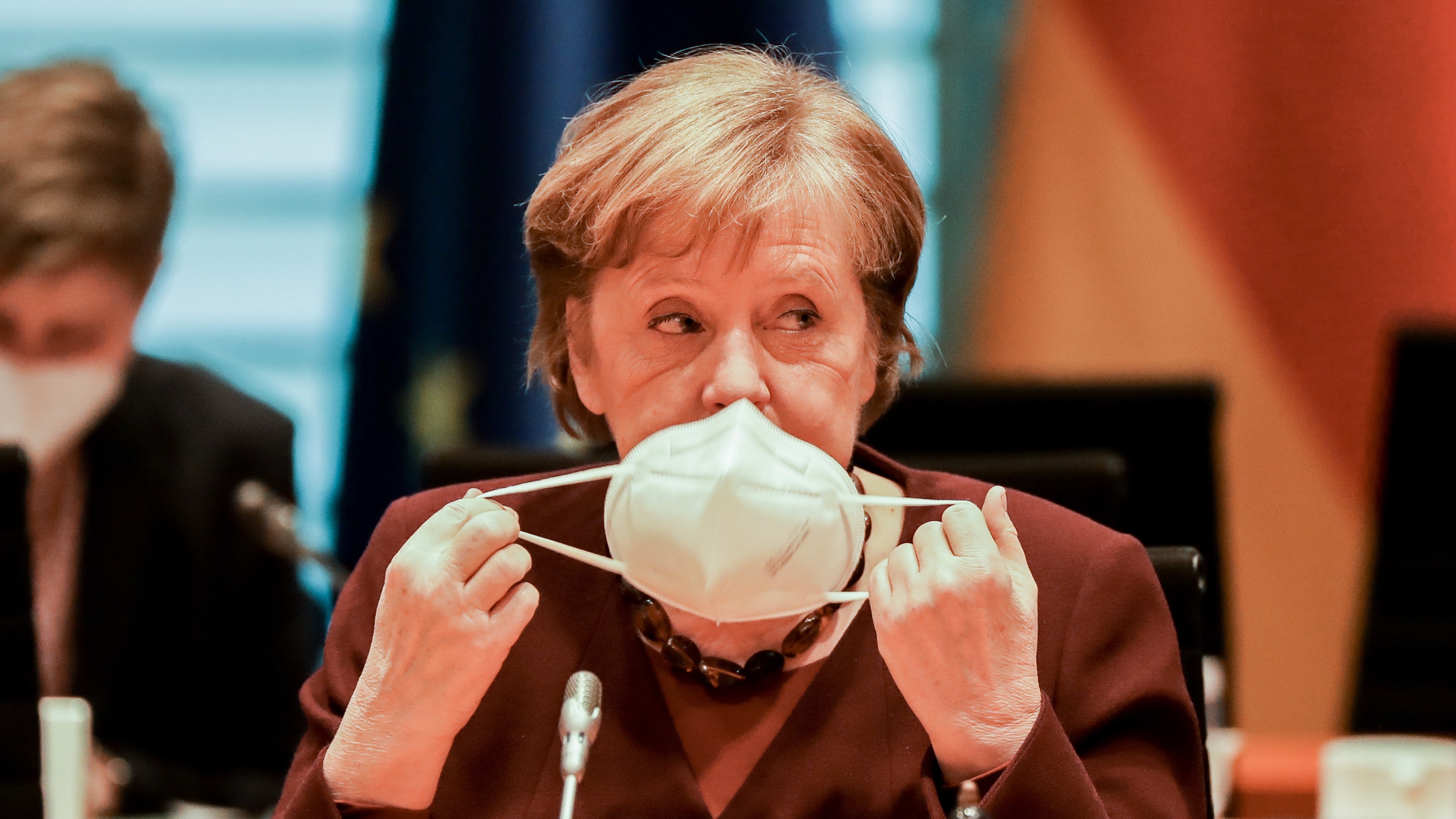Election results spell trouble for Angela Merkel’s heir
Voters punish chancellor’s party amid slow Covid vaccine rollout and face mask scandal

A free daily email with the biggest news stories of the day – and the best features from TheWeek.com
You are now subscribed
Your newsletter sign-up was successful
Angela Merkel’s Christian Democratic Union (CDU) has made a rocky start to a national election year after losing two key regional votes.
As the whole nation prepares to go the the polls in September, the CDU is reeling from its “worst-ever election result” in the southwestern states of Baden-Wurttemberg and Rhineland-Palatinate, where the centre-right party has “historically enjoyed firm support”, says the BBC.
In Baden-Wurttemberg, the Green Party is on track to retain power with around 32% of the vote, with the CDU expected to get just 24%. And in neighbouring Rhineland-Palatinate, the centre-left Social Democrats are projected to hold on to power with about 35%, with the CDU winning 27% of the vote despite having led in opinion polls.
The Week
Escape your echo chamber. Get the facts behind the news, plus analysis from multiple perspectives.

Sign up for The Week's Free Newsletters
From our morning news briefing to a weekly Good News Newsletter, get the best of The Week delivered directly to your inbox.
From our morning news briefing to a weekly Good News Newsletter, get the best of The Week delivered directly to your inbox.
The elections took place on Sunday amid a “growing scandal over lawmakers who accepted kickbacks for selling masks” while supplies of PPE were in short supply across Germany, The New York Times reports.
A lawmaker representing a district in Baden-Wurttemberg is among three conservative members of the Bundestag who have been forced to resign in recent days following “revelations they had received compensation worth tens of thousands of euros” for facilitating the scale of medical-grade face masks, the paper adds.
The “widening corruption scandal” and “missteps” during the Covid pandemic response are likely to cost the CDU come September, says Politico’s chief Europe correspondent Matt Karnitschnig.
The conservatives have run the federal government for 16 years under Merkel, but now “face the biggest threat to their dominance in a generation”, having “come under fire more recently amid frustration over continued restrictions and the slow pace of vaccinations”, he adds.
A free daily email with the biggest news stories of the day – and the best features from TheWeek.com
This weekend’s votes also represented the “first major test for Armin Laschet”, who was elected to take over from Merkel as CDU leader in January, the BBC adds. Laschet is not guaranteed to be the party’s candidate for chancellor in the national election, with the leader of the CDU’s Bavarian sister party, the CSU, also in the running to stand as the conservative candidate.
CSU boss Markus Soder “has raised his profile as someone who has taken tough, decisive action to halt the spread of the virus in his state”, the NYT says.
By contrast, despite being “Merkel’s preferred candidate to succeed her as chancellor”, Laschet may not “even get a chance to run” for the top job following the regional election drubbings, says Karnitschnig.
Joe Evans is the world news editor at TheWeek.co.uk. He joined the team in 2019 and held roles including deputy news editor and acting news editor before moving into his current position in early 2021. He is a regular panellist on The Week Unwrapped podcast, discussing politics and foreign affairs.
Before joining The Week, he worked as a freelance journalist covering the UK and Ireland for German newspapers and magazines. A series of features on Brexit and the Irish border got him nominated for the Hostwriter Prize in 2019. Prior to settling down in London, he lived and worked in Cambodia, where he ran communications for a non-governmental organisation and worked as a journalist covering Southeast Asia. He has a master’s degree in journalism from City, University of London, and before that studied English Literature at the University of Manchester.